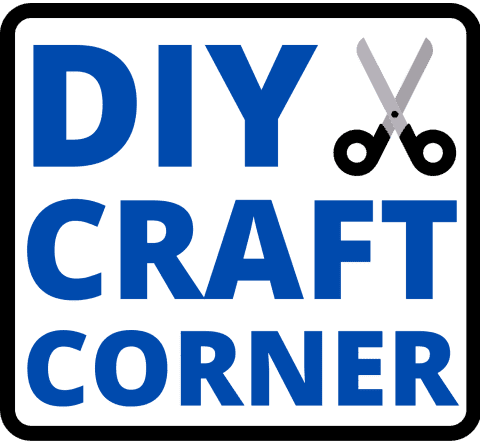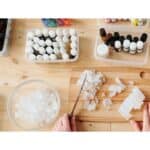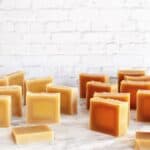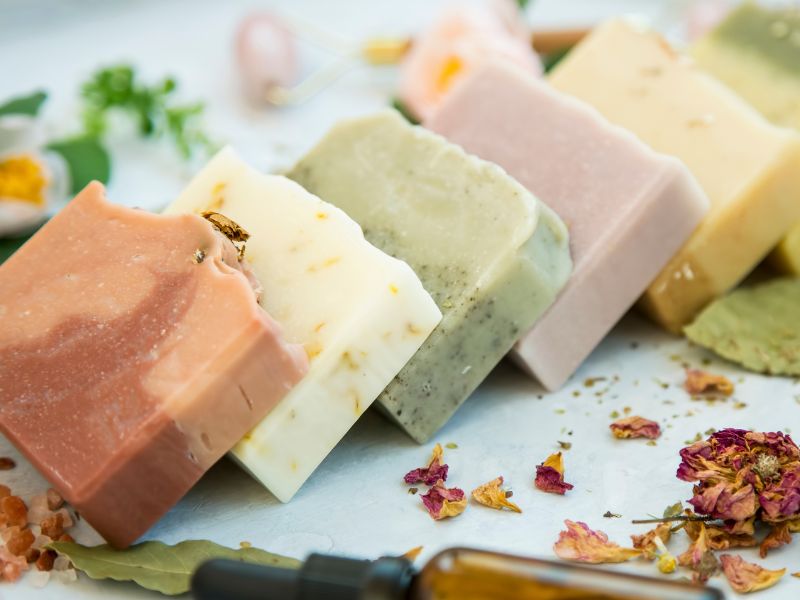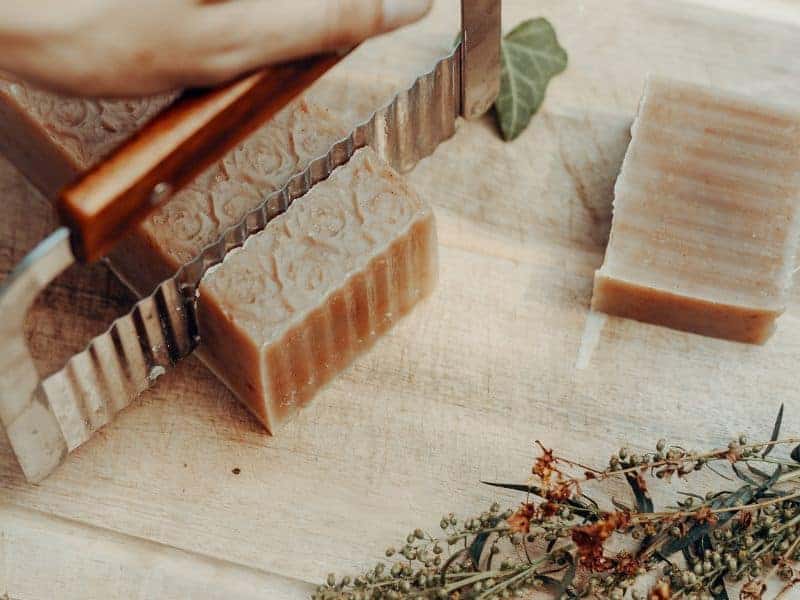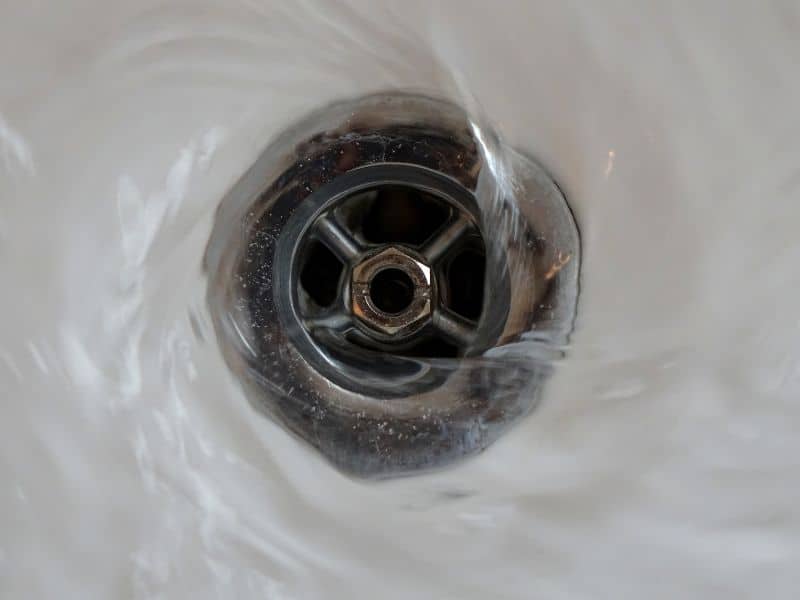When it comes to soap, there are endless options available at your local supermarket or drugstore. But have you ever considered it could be cheaper to make your own soap at home? Homemade soap has become increasingly popular in recent years, with many people seeking natural, personalized skincare solutions. However, is it cheaper to make your own soap?
It is cheaper to make soap at home than it is to buy it. As long as you are making high-quality, handmade soap using natural ingredients it will always be cheaper to make it at home than to buy it. Additionally, you can customize your soap to suit your specific needs.
Not only can you choose from a variety of natural ingredients, but you can also add essential oils, herbs, and botanicals to create your own unique blend. The main costs associated with making your own soap at home include buying the base ingredients, such as vegetable or animal fats, lye (sodium hydroxide), and other add-ins, such as essential oils.
Pros and Cons of Making Soap
Pros of Making Soap
- When making soap at home, you have complete control over the ingredients, scents, and textures of the soap, allowing for a personalized experience.
- You can choose natural ingredients that are environmentally friendly and free from harmful chemicals, which is beneficial for those with sensitive skin.
Cons of Making Soap
- The initial costs of purchasing equipment, ingredients, and molds can be expensive, especially if you plan to make large batches of soap.
- Making soap at home requires a significant amount of time, including measuring and mixing ingredients, waiting for the soap to set, and cutting and curing the soap.
Pros and Cons of Buying Soap
Pros of Buying Soap
- Buying soap is convenient and readily available at most grocery stores and pharmacies, which saves time and effort.
- There is a wide variety of commercially available soaps to choose from, including different scents, textures, and ingredients.
Cons of Buying Soap
- Commercially made soap can be expensive, especially if you purchase artisanal or organic brands.
- Some commercial soap brands contain harmful chemicals, such as parabens and sulfates, that can be detrimental to the environment and human health.
Cost Comparison: Making Soap vs Buying Soap
When it comes to the cost of making soap versus buying it, the answer is not straightforward. The initial costs of making soap at home can be higher, but the cost per bar decreases as you make larger batches.
The cost of buying soap can also vary widely depending on the brand and type of soap purchased. Generally, making soap at home is less expensive than buying artisanal or organic soap brands, but more expensive than purchasing commercial soap brands.
However, you can make handmade, all-natural soap with high-quality ingredients at home for a lower price than you will ever be able to buy it.
Why is Store Bought Soap So Cheap?
Store-bought soap is often sold at a low price point, making it accessible and affordable for many consumers. However, this low cost is often due to the use of cheap synthetic ingredients, which can be harmful to both your health and the environment.
One reason store-bought soap is so cheap is that it is often made with synthetic detergents, such as sodium lauryl sulfate (SLS), which is a common ingredient in many household cleaning products.
These synthetic detergents are less expensive than natural ingredients such as oils and butters, which are often used in handmade soap. Additionally, synthetic fragrances and preservatives are often added to store-bought soap to enhance the scent and extend the shelf life of the product.
However, these synthetic ingredients can be harmful to your skin and your health. For example, SLS can be irritating to the skin and can strip the natural oils from your skin, leaving it dry and prone to cracking.
Synthetic fragrances can also contain a variety of chemicals, including phthalates, which have been linked to health issues such as hormone disruption and reproductive problems.
How to Minimize Homemade Soap Costs
There are many ways to save money on soap-making equipment, such as shopping at thrift stores, flea markets, or stores like Goodwill.
Thrift stores are a great place to look for secondhand equipment such as measuring cups, mixing bowls, and spoons. You can often find these items in good condition at a fraction of the cost of buying them new.
Flea markets and garage sales are also great places to find soap-making equipment. Look for items like soap molds, cutting tools, and even small kitchen appliances like immersion blenders.
Stores like Goodwill can also be a treasure trove of soap-making equipment. Keep an eye out for items like crockpots, digital scales, and thermometers.
These items may not be specifically marketed for soap making, but they can be repurposed for that purpose and save you a lot of money.
Quality Comparison: Homemade Soap vs Store-Bought Soap
When it comes to comparing homemade soap versus store-bought soap, quality is a crucial factor to consider.
Homemade soap can be crafted with natural ingredients and customized to meet specific skin care needs, while store-bought soap often contains synthetic ingredients that can be harsh on the skin.
Homemade soap also has a unique texture and appearance that can add a rustic touch to your bathing routine. However, store-bought soap undergoes rigorous testing and has a longer shelf life, making it a safer and more convenient option for some individuals.
How Store-Bought Soap is Made
When it comes to personal hygiene products, most people assume that store-bought soap is a safe and effective option. However, the truth is that many popular soap brands contain a range of synthetic ingredients that can be harmful to your health and the environment.
One of the most concerning aspects of store-bought soap is the use of synthetic fragrances. These fragrances are often made from a mixture of synthetic chemicals and can contain potentially harmful compounds such as phthalates and musks. These compounds can disrupt hormone function, trigger allergic reactions, and contribute to environmental pollution.
In addition to synthetic fragrances, many store-bought soaps contain synthetic preservatives such as parabens and triclosan. These preservatives are added to extend the shelf life of the soap and prevent the growth of bacteria and mold.
However, they can also disrupt the natural balance of bacteria on your skin and contribute to the development of antibiotic-resistant strains of bacteria.
How Homemade Soap is Made
Making your own soap at home can be a fun and rewarding way to take control of the ingredients you use on your skin. By using natural and safer ingredients, you can create soap that is gentle on your skin and better for the environment.
One of the advantages of making soap at home is the ability to customize your ingredients. You can choose from a range of natural oils and butters, such as coconut oil, shea butter, and olive oil, to create a soap that suits your skin type and preferences. You can also add natural colorants, such as clays and herbs, to enhance the appearance of your soap.
Another benefit of making soap at home is the ability to avoid synthetic fragrances and preservatives. Instead, you can use natural essential oils to add scent and natural preservatives such as Vitamin E oil to extend the shelf life of your soap.
Environmental and Health Considerations
When making or buying soap, it is essential to consider the environmental and health impacts of the ingredients used. Commercially made soap often comes in single-use plastic packaging, which contributes to plastic waste.
Environmental Impact
Homemade soap, on the other hand, can be packaged in eco-friendly containers, reducing waste. When you make homemade soap it reduces the shipping, the packaging, and the overall carbon footprint that is created to bring commercial soap from the factory to your home.
When making soap at home, you can also choose natural ingredients that are free from harmful chemicals, which is beneficial for both the environment and human health.
Synthetic Ingredients
Most commercial soap products are full of synthetic ingredients, such as sulfates and preservatives. These ingredients can be harsh on the skin and have been linked to irritation and dryness.
When making soap at home, you can avoid these synthetic ingredients and substitute them with natural alternatives. Natural oils and butters are excellent for nourishing and moisturizing the skin while providing a luxurious lather.
Frequently Asked Questions
Some ways to save money when making soap at home include buying ingredients in bulk, reusing equipment, and using simple molds.
Yes, there are some upfront costs associated with making soap at home, such as purchasing equipment, ingredients, and molds.
The necessary ingredients for making soap at home include a lye solution, oils, and fragrance or essential oils.
Making soap at home can be a bit challenging at first, but with practice and the right resources, it can become a fun and rewarding hobby.
Yes, children can help with making soap at home with adult supervision.
The shelf life of homemade soap varies depending on the ingredients used, but it typically ranges from 6 months to 1 year.
Yes, it is important to take safety precautions when making soap at home, such as wearing protective gloves and eyewear and working in a well-ventilated area.
Conclusion
In conclusion, making soap at home can be a fun and rewarding hobby that is often cheaper than buying it. However, the upfront costs of ingredients and equipment can be high, so you may want to consider buying equipment from a thrift store or a flea market.
Additionally, when making or buying soap, it is essential to consider the environmental and health impacts of the ingredients used. With the right resources and safety precautions in place, making soap at home can be an enjoyable activity for everyone.
